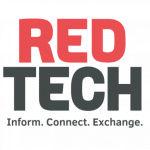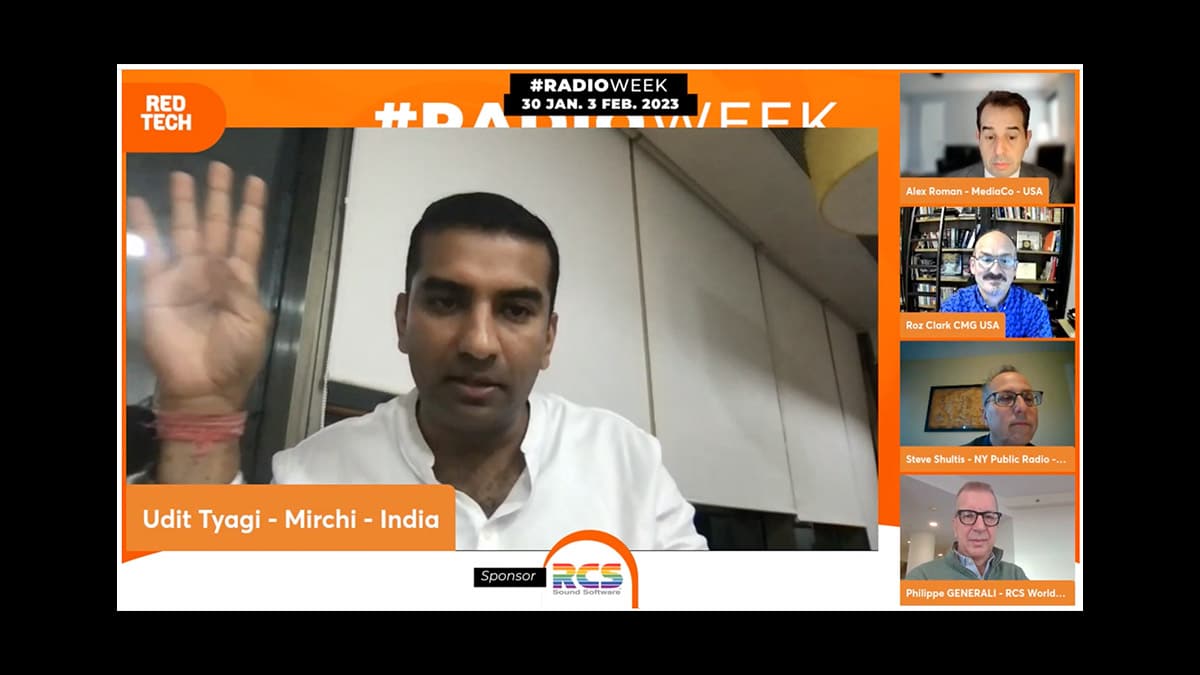Few technological shifts in broadcast radio have been more dramatic than those brought about by virtualization. The defining image of a radio host seated behind a desk in a studio full of equipment is making way for that of the more ephemeral cloud. However, the benefits for broadcasters are tangible — options are unlimited, and operational costs are tumbling.
The pandemic has left us with many questions as to how to move forward: How do we organize our hybrid workforce? Do we downsize our offices? What about teamwork?
In day 3 of RedTech’s RadioWeek, guest moderator Steve Shultis, chief technology officer for New York Public Radio, touched on these questions and more with four guests who know a thing or two about successful virtualization in broadcasting. These were Philippe Generali, CEO of RCS; Udit Tyagi, chief digital officer at Mirchi, India’s leading privately owned network; Alex Roman, chief technology officer for Mediaco’s New York stations; and Roz Clark, Cox Media Group’s senior director of engineering for radio.
Inevitable
The general consensus was there is no doubt that facilities are shrinking, and virtualization is here to stay. But questions remain as to the best way to go about this transformation.
According to Roman, radio is a unique animal. It has a culture of teamwork, so there are pluses and minuses to hybrid. But, he emphasized, what comes out of it matters, and paying attention to it is very important. Advantages such as being able to use distant talent is one benefit, and means that radio, which has always been famous for moving around, doesn’t have to do that anymore since we now have access to people on the other side of the country or world.
Clark noted that on the downside, however, the gap you have with conversations and relationship building gets lost. But at the same time, the flexibility and ability to collaborate through new technologies is great.
Generali agreed, “You don’t have the improvisation around the water cooler.” As CEO of a company synonymous with broadcast automation, Generali has a lot of experience in virtualization and the cloud. “We have been doing remote work for a long time,” he said. “We’ve found that when the pandemic arrived, the browser-based products went from being gadgets to mission-critical tools.”
Roman went on to describe Mediaco’s process of shrinking its workspace. He cautioned that when you have a hybrid schedule, you don’t want the space to feel empty. So, it’s a good idea to reduce your footprint. “Space reuse is a thing. The concept of having one production person for one production studio is changing. Scheduling systems are going to become important for operational reasons,” he said.
“We have seen many studios worldwide that are now using the same studios for one brand or another and they switch back and forth depending on the hosts that are in there,” noted Generali.
Flexible facilities and content
Roman added that not only the rooms need to be flexible, but also the content needs to be as well, to be able to use it on the different platforms. A lot of that shift has happened over the last few years. Stations were already on this path, but it accelerated with COVID.
Tyagi emphasized this point, “Everything has to be flexible or multipurpose, content and studio. The studio has to solve all purposes. You have to focus on the cost of production, audio and video. That’s not just human resources, but the brick and mortar walls. You are competing with a podcaster in his house, so the more nimble and agile you are, the better the chance of success. For Mirchi, social is a very big thing. Mirchi has more interaction than some of the top media houses in India.”
He explained how most of the processing is happening server side. On the client side, little processing is happening; mobile is as cheap as it can be in south Asia.
In Tyagi’s perspective, hybrid work is good for wide horizon situations, but for focus, in person is immeasurable. As an example, he pointed out that for a teamwork topic, it might take six zoom calls and four hours, whereas in person, the conversation could be closed in an hour and a half.
In conclusion, Roman reflected on the fact that we don’t know which problem we’ll face in the future, so we need to be as ready as we can in every area of our business.
Generali emphasized that cloud is your friend, and you can have as much as you want or as little. “Dip your toe in the water to see how it goes. One thing is for sure, it’s here to stay.”
Tyagi reiterated this reasoning, “Cloud is here for good; today any digital gear is more or less connected to the cloud. Cloud-based flexibility will support you during any pandemic or other emergency, and give you as much flexibility as possible.”
Dive into the full discussion below.

